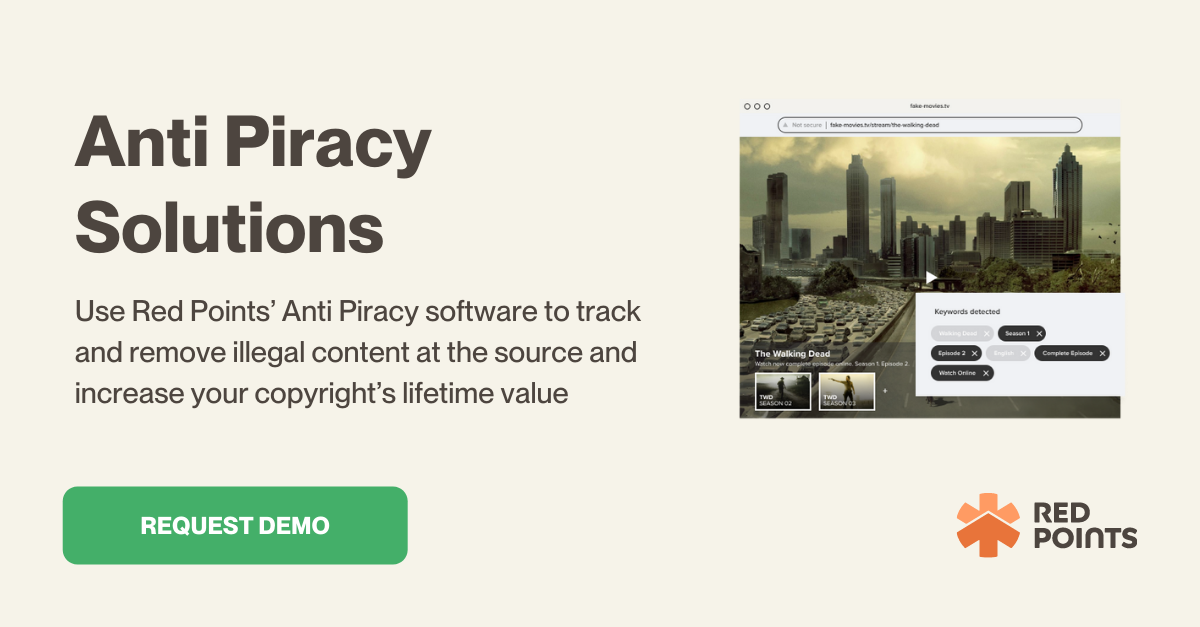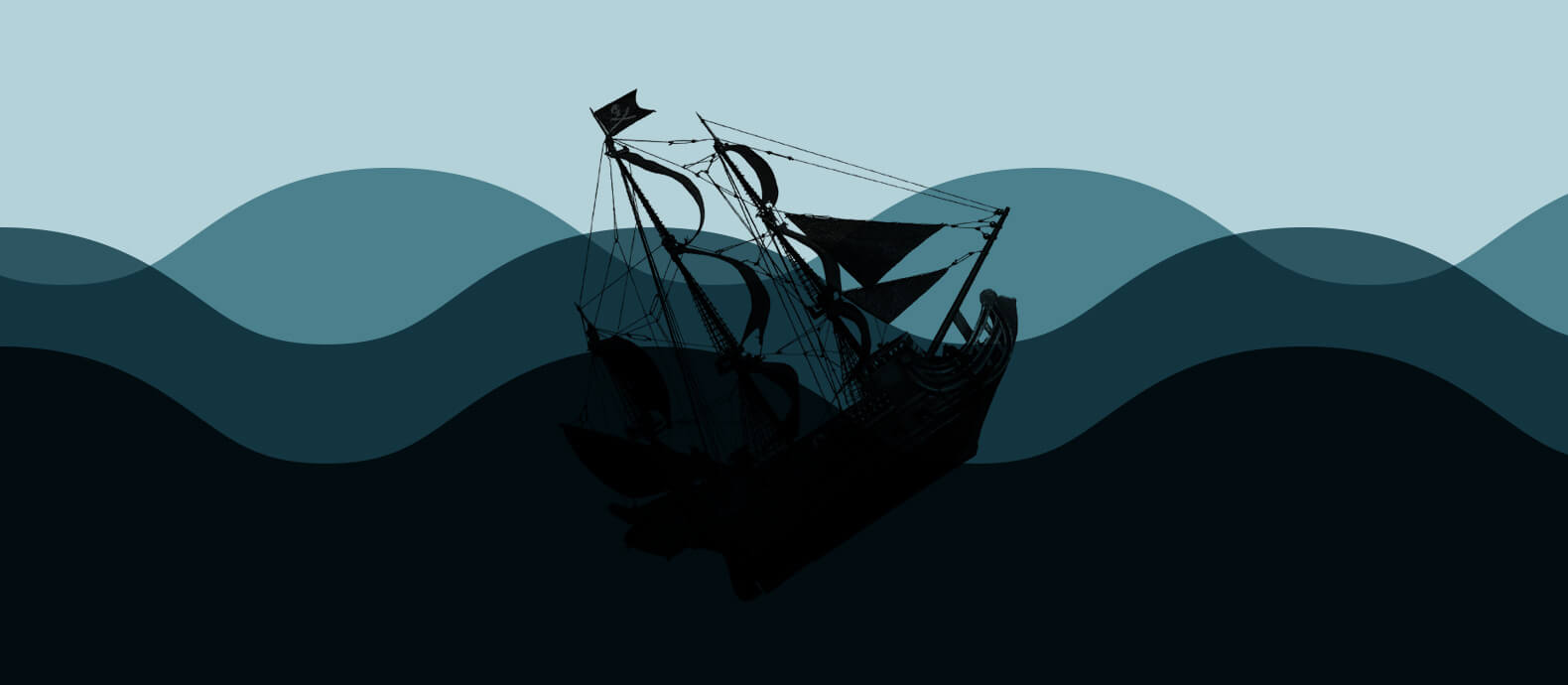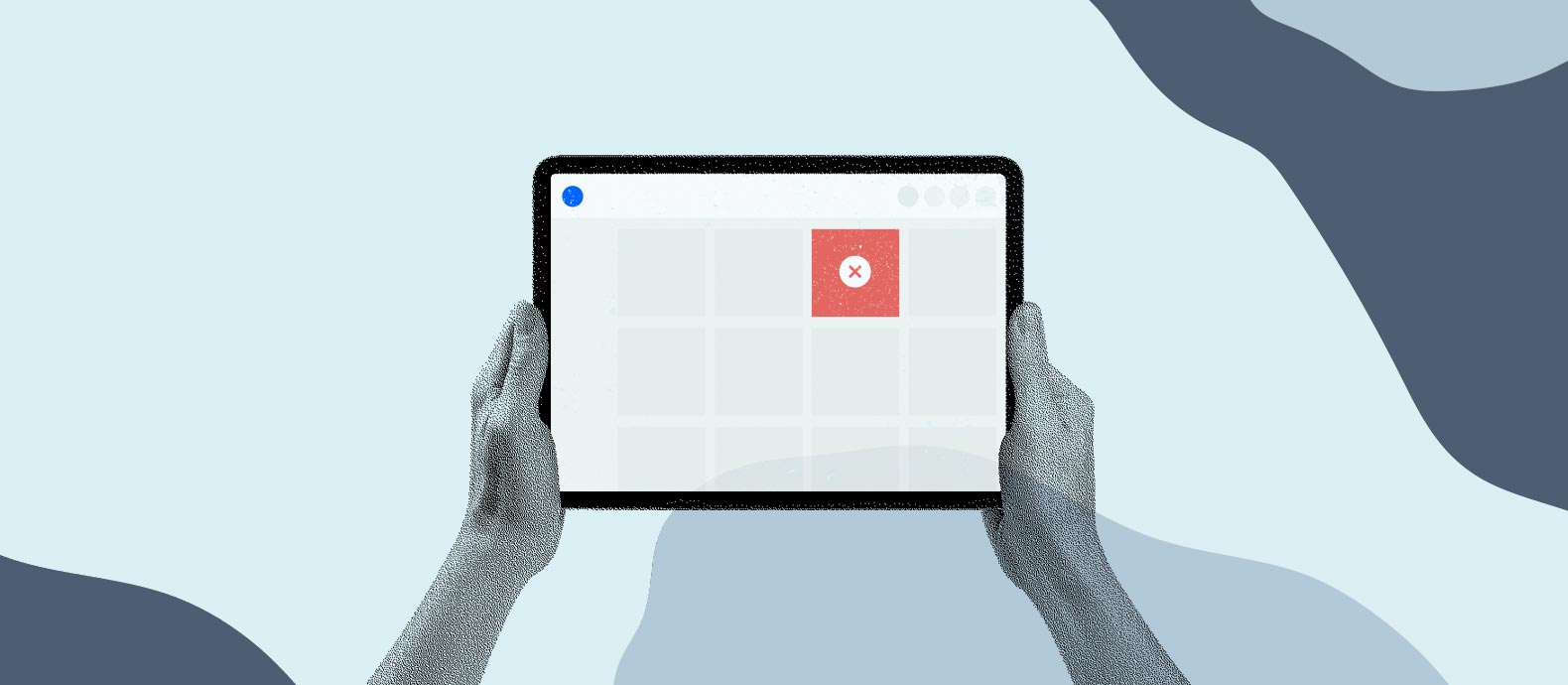What is digital piracy?
Digital piracy occurs when scammers and internet users illegally copy and upload content that doesn’t belong to them online. From novels, songs, and movies, to software and apps, just about any form of creative content can be pirated online.
While digital piracy is unlawful, many content creators find it difficult to prevent and the problem is only growing. According to Dataprot, the illegal uploading and downloading of stolen pirated content make up nearly a quarter of the entire global internet bandwidth. Combating piracy has grown more difficult for content owners, so it’s essential to have a plan in place to protect content online.
Why is digital piracy a problem?
Ease of access to the internet as well as increasing amounts of original content to steal continues to make digital piracy an ever-growing threat. According to the Online TV Piracy forecasts from Digital TV Research, revenue lost to piracy will reach a whopping $52 billion by 2022.
Though some have argued piracy may be good for generating word-of-mouth buzz, it simply isn’t worth the amount of lost revenue it results in. This is true for industry-leading companies losing out on millions, as well as small businesses and content creators losing customers and sales to online infringements. No matter what size your operation is or the type of content you own, it’s essential to protect it from piracy.
What is the impact of digital piracy?
The negative impact of digital piracy reaches far beyond industry-leading companies that have lost the most revenue from pirated content. Piracy affects content creators, consumers, and society as a whole.
Content creators suffer from digital piracy whether they’re rockstars or artists selling their work on Etsy. If the profit made from piracy outweighs the profit a creator can make, there is far less incentive for the creator to produce content at all. In this situation, no one wins– creators won’t be making content, and consumers won’t have content to experience. Piracy even has greater social impacts that extend far beyond content owners and companies. The new EUIPO online Copyright Infringement in the European Union found that increasing piracy often leads to diminishing IP rights that protect copyright material online. Without content owners taking proper action against digital piracy, it will become more difficult to enforce ownership over your own content.

How to prevent digital piracy
While the threat of digital piracy isn’t going anywhere, you can still ensure your content is safe from being illegally replicated online. Follow these steps to protect content online and prevent digital piracy:
Copyright your work
Even though your work is automatically protected by copyright if it meets the criteria to be qualified as copyright content, copyrighting your work will make it far easier to monitor and take down infringements online, and get it taken down when it occurs.
Educate your audience
Keep clear and open communication about digital piracy with your audience. Ensure your audience is aware of the negative impact illegally downloaded content has on your brand, and help them identify fakes online. Clearly communicating pricing, release dates, and other information unique to your brand and content will help your audience avoid pirated content.
Report infringement to law enforcement
Reporting digital piracy to law enforcement creates an official record of infringement online, and may increase the chances of the content being taken down. If you have identified pirated content in the United States, you can file an FBI report on their Internet Crime Complaint Center.
Contact the pirate site
Website owners and domain hosts are usually public information that can be found quickly online. If you need to take down a website for copyright infringement, reach out to the domain registrant, host, and any other contact associated with the site. This tactic can save you more time and stress if they heed your request before you take official action.
DMCA takedown
A DMCA takedown is an official notice sent to the uploader of pirated content, as well as other necessary contacts. This notifies them of your ownership of the pirated content they have illegally uploaded, and that it must be removed.
Report pirated content to marketplaces
Sending a DMCA takedown to the original uploader may not prove successful in taking down pirated content. If your request is ignored and the content was posted on a marketplace or platform, the site administration can help get the content taken down.
How to take down pirated content on:
Use anti-piracy tools
The sheer amount of illegal uploads online makes it nearly impossible for even the largest IP enforcement teams to fully protect content from being pirated. Anti-piracy tools offer a completely automated way to track and take down piracy online. offer a scalable solution. Anti-piracy software like Red Points can identify infringements immediately, and takedown piracy at the source.
Next steps
Content is always a risk of being stolen and pirated online, and it’s essential that content owners take these steps to prevent digital piracy. If you want to ensure your content is protected online 24/7, Red Points can help. Learn more about how you can combat piracy with our Anti-Piracy Software product guide.






